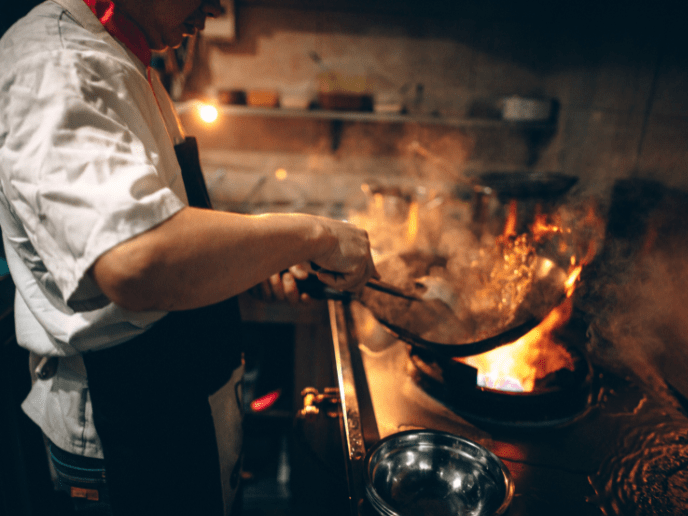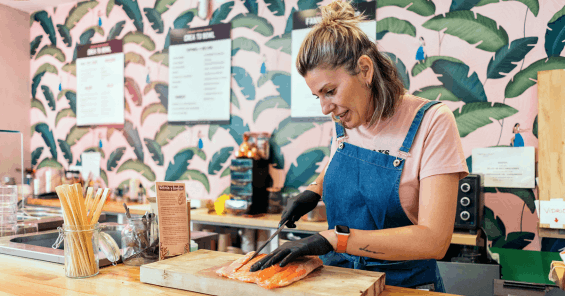

Why Restaurant Sustainability Is More Than A Passing Trend
Discover how sustainability is transforming the restaurant industry, from farm-to-table practices to zero-waste cooking. This article dives into generational shifts in diner expectations, chef insights, and practical steps to align your restaurant's menu and operations with growing eco-friendly demands.
From purchasing and preparation to presentation and consumption, sustainability is growing in awareness among restaurateurs and consumers alike. As diners become more aware, restaurant choices will increasingly be made based on the establishments' ability to offer organic and clean foods. As well as how they measure up in overall sustainability.
Today more than ever, sustainability is more than a passing trend. It’s an absolute necessity. According to the United Nations Department of Economic & Social Affairs, global population is expected to reach 9.1 billion by 2050. This puts even more pressure on the limited land resources used for crops and livestock. Adding to the burden of our already strained water supply.
Six Laws of a Resilient Restaurant
Learn how to optimize every facet of your business, from menu optimization to tech solutions and gain actionable insights on saving money, driving engagement, and ensuring safety in your restaurant

Sounds pretty dismal, doesn’t it? When you consider that approximately ⅓ of food production is either lost or wasted each year, we have the ability to turn this chain reaction around. And an increasing number of restaurants are taking a socially responsible stance to do just that.
Sustainability, not just a buzzword
Although dwindling environmental resources are a significant slice of the sustainability pie. There are two other trends to consider - continuing rise in diner eco-friendliness expectations and increasing demand for transparency on how ingredients are sourced. For restauranteurs, these three closely correlated trends are a call for sustainability action.
How did sustainability get its start and where is it going? Baby Boomers (those born between 1946 - 1963) began the demand for sustainability. According to the Hartman Group’s Sustainability 2017 report, this generation pushed for fresh, less processed foods. And who could blame them? Many from this era were practicing sustainability even as kids. Remember the milkman who delivered milk in glass bottles directly to your home, and retrieved the empty ones for sanitization and reuse?
Five decades later
Let’s jump ahead five decades or so. Today it’s the Millennials and Gen Zers that are speaking their environmentally-inclined minds with their wallets. Millennials are all about transparency. They’re giving healthy food a new definition. To them it’s not about low-fat or high-fiber. They want natural, organic and locally sourced food. How food is sourced and grown is of the utmost importance to them, as is the carbon footprint restaurants, farms and supply chains are leaving on the environment.
Like their predecessors, the Gen Z population gravitates to restaurants that serve fresh and organic dishes and use sustainable processes. They also expect complete ingredient transparency from the restaurants they frequent, as well as the ability to choose their portion size. These consumers are willing to pay a bit extra to keep the sustainability ball rolling.
In fact, according to the Nielsen Company both of these groups (74% of Millennials and 72% of Gen Zers) are willing to pay more for sustainable products and services. They want the assurance of knowing what they are eating and where the food is coming from and they are helping the environment.
Chefs speak out
From Baby Boomers to Gen Zers, sustainability is here to stay. But what do the chefs that are responsible for satisfying changing taste buds and following sustainability protocols have to say. In a recent What’s Hot Culinary Forecast survey, zero-waste cooking ranked number 3, directly after cannabis/CBD oil-infused drinks and food. Also, in the top 10 were hyper-local, new cuts of meat, veggie-centric/vegetable-forward cuisine, and not to be left out cocktails with craft/artisan/locally produced spirits coming in tenth.
The survey confirmed that consumer culinary desires are in line with restaurant sustainability efforts. Take for example plant-based protein. Restaurants are modifying their menus to include items such as plant-based sausages and burgers. And in keeping with consumer demand, some of the produce to create these meals are coming from local farms or directly from the restaurant’s patio or rooftop gardens.
Give your menu a facelift
Your menu cannot be a one and done initiative. To draw clientele you need to periodically refresh your menu to take advantage of locally grown seasonal fruits and vegetables. When you serve what’s in season you not only reduce your costs and lessen your carbon footprint, but you attract diners because of your sustainability efforts.
With a menu that changes seasonally, how can you be sure that your kitchen staff is using exact measurements to minimize unwanted waste? Step-by-step instructions, exact ingredients, portion sizes and creation instructuctions will quickly get them on the road to consistently creating your seasonal delights.
Sustainability… what’s next?
Without a crystal ball it’s hard to say what our next steps will be. Given the focus on transparency, farm-to-table, and the need to reduce our carbon footprint. There is a high probability that restaurants will be one of the first industries to implement all encompassing sustainability processes and procedures.

Automate your inventory management, control food costs, and streamline back-of-house processes effortlessly with MarketMan's restaurant software. MarketMan enables restaurateurs to eliminate manual tasks, reduce waste, and drive success through strategic insights. Experience a new level of restaurant efficiency. Schedule a demo now to learn how MarketMan can revolutionize your operations!
Author
Contributors
If you have any questions or need help, feel free to reach out
Don't miss out on maximizing your restaurant's profits! Calculate your ROI with MarketMan
Join over 18,000 restaurants and get the hottest restaurant tips delivered to your inbox
You may also be interested in
Ready to get started?
Talk to a restaurant expert today and learn how MarketMan can help your business






